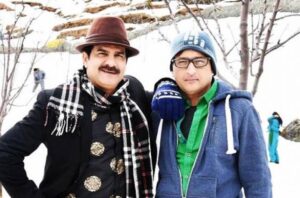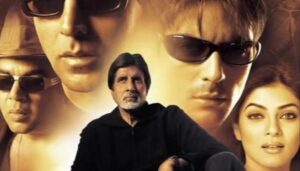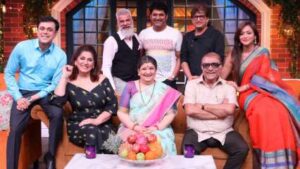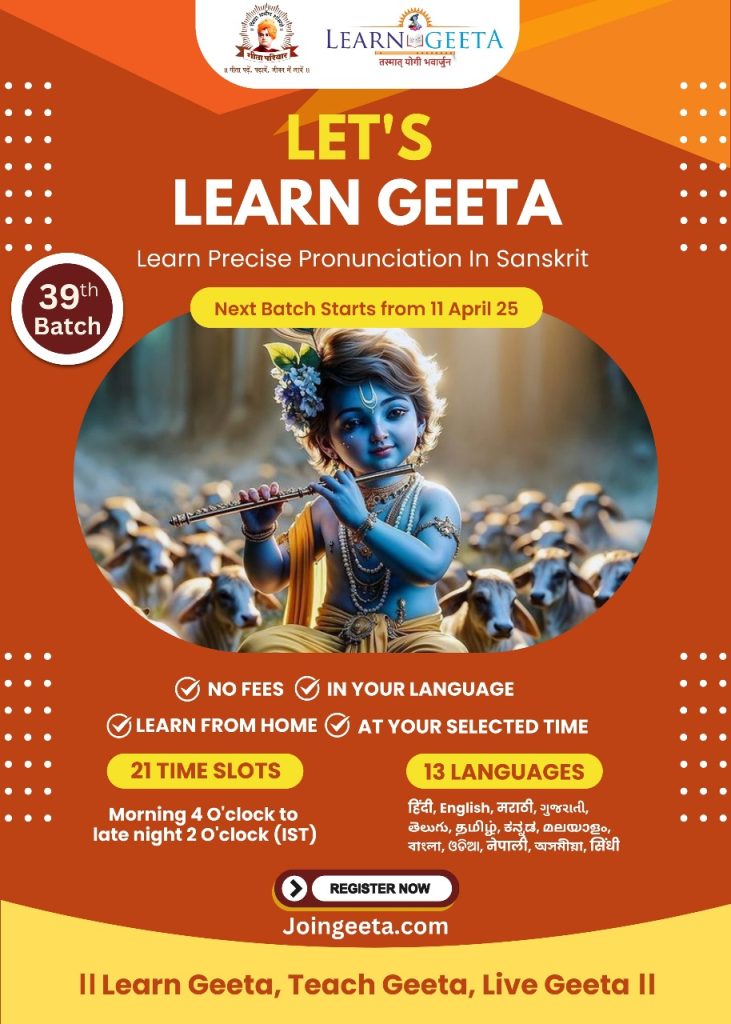Film industry doesn’t give character actors their due
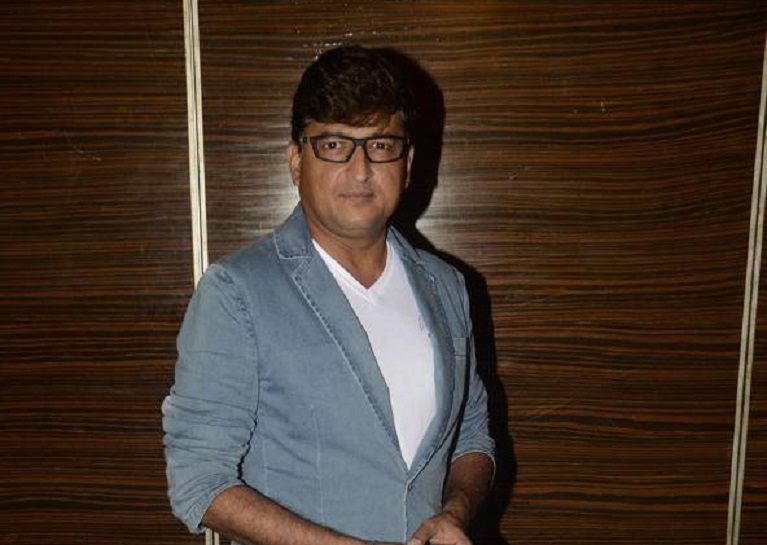
Actor-producer-director-lyricist AATISH KAPADIA, the man who brought Gujarati homes into our lives, tells SAURABH TANKHA as to why Take 2 of Sarabhai vs Sarabhai failed to replicate the success of the first edition, how challenging is it to pen characters which audiences relate with, future plans of his life and more…
It can never be too easy for a six-year-old to come to terms on why that the chauffer-driven car he would travel in for the haircuts at the Taj or the trips to the derby he made with his parents and brothers in that big vintage Ford or his personal aquarium and the radio gram from his room just disappeared one fine day. He fails to understand as to why his father’s textile business collapsed and why the joint family he had stayed with lovingly till then blamed each another for it.
No, this isn’t the screenplay of a Hindi movie but a chapter from writer-producer-director Aatish Kapadia’s life. All this and much more resulted in Kapadia turning into a recluse. He would often take refuge on a champa tree near his home, sucking his thumb and despite being an extremely bright student, he was labelled dark and dumb by some of his teachers at school.
But Kapadia never let all this shake his self-confidence. He picked himself up, completed his studies and as luck would have it, became a part of the entertainment world, writing-directing-producing serials like Khichdi, Sarabhai vs Sarabhai, Baa Bahu Aur Baby, Badi Door Se Aaye Hain. Not this alone, he wrote screenplay for movies like Action Replayy, Khichi: The Movie, Aankhen, Mann and Josh.
Excerpts from an interview:
How did you foray into the entertainment industry?
My journey began with the admission to Narsee Monjee College of Commerce and Economics. I had heard it had a lot of theatre activity and participated in most inter-college competitions so I was fixated on joining it. My parents were shocked with my decision, since ours was a business family. But to me, theatre was the only reason to get into a college. It was here that I started acting and writing plays.
How did get so interested in theatre? Had you done plays in school?
I was very fond of watching plays and to be on stage was a dream I nurtured since childhood. One of our neighbours was a Gujarati playwright who often gave us complimentary passes, his way of thanking us for letting him use our telephone. Those days not many had telephones at home. The ritual of tying a gajra on a wooden plank before the curtains were drawn and the play began fascinated me no end.
Then there was a college opposite our house in Vile Parle, called Parle College (now Satahye College). They enacted a play during their college day celebrations – I used to request the security guys to let me watch the play which I would do sitting on the floor. And when I visited my maternal uncle’s home at Churchgate, I would sneak into the Jai Hind Auditorium located to watch plays and the gatekeepers never stopped me as we lived just across the street.
My present-day business partner, JD Majethia. He was a year senior to me in college, and his plays were a great attraction for all. Even the trustees would specially come to watch him perform. He was and has always been a big star
I turned to writing, courtesy my present-day business partner, JD Majethia. He was a year senior to me in college, and his plays were a great attraction for all. I didn’t like one of the plays he wrote and asked him if I could change it a bit. He liked what I did with it. That was the day when I turned writer and he quit it. The first script I wrote was at age 19, in 1987. It was a TV serial, Agantuk, for Gujarat Doordarshan. I learnt writing episodes for TV serial from producer Shobhana Desai. My first full-length commercial play was Andhro Pato which became a runaway hit. That was the turning point of my life. The film Aankhen (2002) was based on this play.
The first script I wrote was at age 19, a TV serial, Agantuk, for Gujarat Doordarshan. My first full-length commercial play was Andhro Pato which became a runaway hit. That was the turning point of my life. The film Aankhen (2002) was based on this play
Why do you think Sarabhai vs Sarabhai and Khichdi didn’t strike a chord with viewers initially, but later achieved the cult status?
Initially, these shows were not liked by people as most TV shows made during that time were made for “highly unintelligent people’’. Those very unrealistic shows got the ratings. It was my anger at the prevailing situation that made me create a family (Sarabhai Vs Sarabbhai) which was even more bizarre than what was seen on TV. And I created humour out of their bizarre behaviours. I think I have Maya Sarabhai in me. A part of this character came to me from watching some of my mother’s family members and friends at Altamount Road, Malabar Hill and Cuff Parade – Maya Sarabhai has that polish, that class.
Khichdi too people didn’t understand in the beginning, mainly because I didn’t put a laughter track as was the practice that time. Only after a few weeks of telecast did people realise of it to be pure comedy. Thereafter, Khichdi became a hit.
My mistake in season 2 of Sarabhai vs Sarabhai was that I shook the equilibrium by changing the set. And I shouldn’t have shown that Sahil and Monisha now have a kid. I should have frozen them in time
Why do you think the Take 2 of Sarabhai vs Sarabhai or to an extent Khichdi were unable replicate the success of the first edition?
My audience of Khichdi is now gone. The second season of Sarabhai vs Sarabhai was for the web. I think my mistake was that I shook the equilibrium by changing the set. The earlier set was a powerful one. The second season showed that their early home is being redeveloped. That was a huge mistake, I think. I shouldn’t have shown that Sahil and Monisha with a kid. I should have frozen them in time.
You introduced us to Gujarati homes. Any plans to introduce us to other regions?
I would love to cover different regions. I want to do a Muslim show, and show a family with a completely different perspective. We have preconceived notions about how they live – young Muslim people don’t go around talking aap-janaab, aadabarzhai, guzaarish, imtehaan. Normal Muslims girls don’t wear shararas with a mang-teeka at home. When I take up a community, I de-stereotype it. I had written a story called Amar Prem but it never happened because the channel said it was too evolved. It was set in Kolkata with a nationalistic backdrop, communalism, right wing-left wing conflict during which a love story blossoms. It had strong opiniated people, it had class conflict and the Bengali culture reflected perfectly. But I think I have become typecast, channel people want me to do only Gujarati family comedies.
I want to do a Muslim show with a different perspective. We have preconceived notions about how they live. When I take up a community, I de-stereotype it. But I think I have become typecast
How satisfied are you with the content being aired these days, especially on the small screen? Any actors you find outstanding?
The lesser said about TV the better it is. Every story is a love story and every story is like pehle jo nahin mila pate the aankhein woh ban gaye hain aaj jeevan saathi. On TV, I prefer reality shows – I love Indian Idol and The Kapil Sharma Show, especially Krushna Abhishek on it. As regards the web, I have watched This Is Us, Big Little Lies, Little Fires Everywhere, Unbroken. But nothing among the Indian shows has caught my fancy – I found them too pretentious, though they try hard to be uber cool. Lately, there are these two fancy words people have started using – loud acting or subtle acting. But there is nothing like that. For, me an actor has to do the right amount of acting, he/ she has to be in sync with the character. That’s all. I think Amit Sayal and Siddhant Chaturvedi (Gully Boys fame), Prateek Gandhi and Shreya Dhanwanthary (from Scam) are pretty good. I find Sheeba Chadha a phenomenal actor. You see her in Badhai Ho and Mirzapur. The same goes for Ratna Pathak Shah. A big problem our film industry has is that it doesn’t give character actors their due. And one good thing web series has done is that these have brought character artistes to limelight. Or there is Seema Pahwa who does live theatre, Cooking With You, where she cooks a meal for you and tells a story during its making. This is so interesting and supremely fascinating.
How challenging is it to pen characters which audiences can relate with?
I don’t really bother whether it will resonate with the audiences or not. I have never done that. I just do what I like. For me, success is a by-product. Like while making Wagle Ki Duniya – Nayee Peedhi Naye Kisse (2021), there was a responsibility on my shoulders. An icon RK Laxman had written characters of this show and it was my duty to not move away from it. I kept it in mind and to my good fortune, Laxman sir’s family recently called me; they said he would be blessing me for keeping the soul of the show intact.
While making Wagle Ki Duniya – Nayee Peedhi Naye Kisse (2021), there was a responsibility on my shoulders. An icon RK Laxman had written characters of this show and it was my duty to not move away from it
Other interests
Cook and spending time with my family. The period of lockdown was a party time for us – my wife, Alison, and son, Agastya, 15 played different games together.
Future plans.
I don’t plan for future, and I don’t think much about it. At present, I am writing the script for a feature film we, Hatsoff Production, are producing. Then, there is a web series in hand too.


